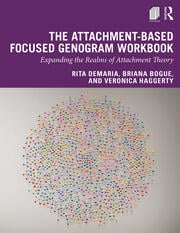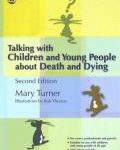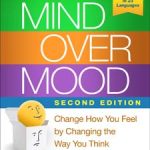The Attachment-Based Focused Genogram Workbook is a hands-on guide for clinicians looking to integrate attachment research and family systems theory into their practice, with particular attention to intergenerational transmission processes.
The book introduces a range of relationship mapping and timeline tools, grounded in the use of focused genograms and the Intersystem Approach. Examining the importance of the therapeutic bond within a variety of client-systems, the book outlines a new methodology for identifying childhood attachment patterns, adult attachment styles, family scripts and attachment narratives, and contextual social bonds. Exercises are also included throughout to encourage reflective thinking and to consolidate key concepts.
Utilizing genograms as an essential tool in systemically focused family practice, this workbook will help therapists at all levels to apply and strengthen systemic considerations for clinical practice and research. The text also complements the revised edition of Focused Genograms, which uniquely applies attachment research for individuals, couples, and families in contextual clinical settings.
Contents:
- Part I Foundations of the Focused Genogram Applications of Attachment Theory
- 1. Attachment-Based Focused Genograms: The Intersystem Approach and Applications of the Attachment Theory Construct
- 2. The Clinical Mind Map: A Visual Perspective
- Part II Foundations of Therapeutic Posture
- 3. Therapeutic Posture: Developing the Collaborative Therapeutic Alliance
- 4. My Mothers, My Fathers, My Self: Self-of-the-Therapist Project
- Part III Applications in the Four Intersystem Approach Domains
- 5. The Individual Domain: Childhood Attachment Patterns, the Internal Models Map, and Identification of Disorganized Attachment Bonds
- 6. The Couple Domain: The Couple Interaction Map, Couple Flow, and the Interplay of Attachment Bonds
- 7. The Intergenerational Domain: The Family Connections Map
- 8. The Contextual Domain: The Social Bonds Ecomap
- 9. The Attachment-Based Case Formulation: Exploring the Four Domains, Developing the Four Therapeutic Styles, and Identifying Clinical Goals and Tasks
- Part IV The Evolving Focused Genograms
- 10. The Basic Genogram: A Comprehensive Update with Markie L. C. Twist and Rita DeMaria
- 11. The Addictions Focused Genogram: A Companion for Comprehensive Clinical Assessment with Markie L. C. Twist
Author Bio:
Rita DeMaria, PhD, Licensed Marriage and Family Therapist (LMFT), is an American Association of Sexuality Educators, Counselors, and Therapists (AASECT) certified sex therapist and an American Association for Marriage Family Therapy (AAMFT) approved supervisor with extensive expertise in systemic applications of attachment theory within a comprehensive focused genogram methodology, and with a unique focus on disorganized attachment.
Briana Bogue, Marriage and Family Therapist (MFT), PhD Candidate, is a couple and family therapist and trauma researcher. She has dedicated her research and clinical work to understanding how individuals, couples, families, and larger systems experience trauma and access resilience.
Veronica Haggerty, MA, Registered Nurse (RN), MFT, is a couple and family therapist and a victim advocate committed to helping individuals, families, and couples navigate a pathway to healing.
Review:
“The Attachment-Based Focused Genogram Workbook is useful for any therapist interested in using visual tools to gain a focus on treatment. This workbook instructs clearly the process of determining the interconnectedness that is part of any systemic treatment. Moving beyond a summary of those simply involved in treatment, the Focused Genogram leads the clinician in a step-by-step manner into a case conceptualization that incorporates a sophisticated link to attachment theory. All students and practicing clinicians could benefit from the workbook in that it helps take copious information, and allows one to gain precise understanding of multiple dimensions in a visual format. Following the procedure laid out by Dr. Rita DeMaria, et al, will assist a therapist to reduce the complexity of clinical work and create a method to explore the dynamics of any case.” – Scott Browning, PhD, ABPP, professor, Department of Professional Psychology, Chestnut Hill College, Philadelphia





